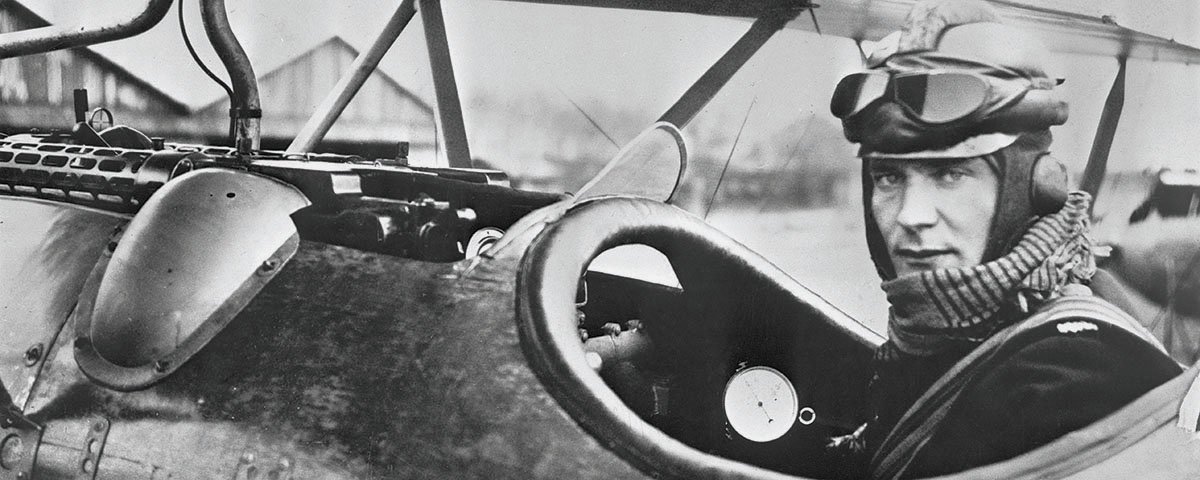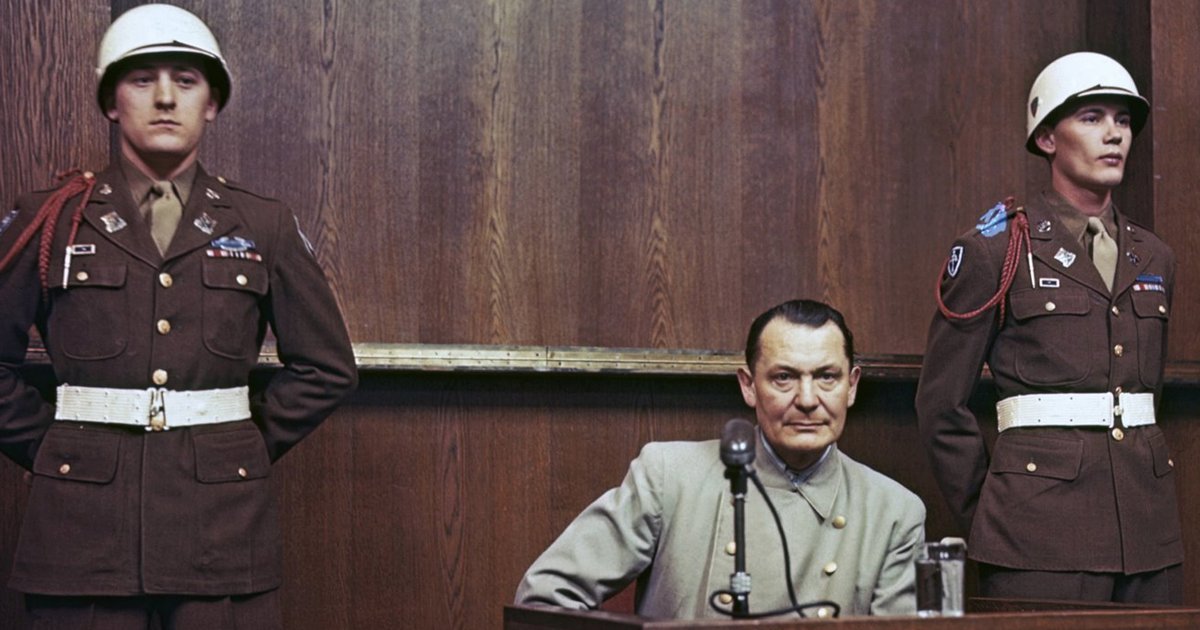Herman Goering
A veteran World War I fighter pilot ace, Göring was a recipient of the The Blue Max. He was the last commander of Jagdgeschwader 1 (JG I), the fighter wing once led by The Red Baron An early member of the Nazi Party, Göring was among those wounded in Adolf Hitler's failed Beer Hall Putsch in 1923. While receiving treatment for his injuries, he developed an addiction to morphine which persisted until the last year of his life. After Hitler became Chancellor of Germany in 1933, Göring was named as minister without portfolio in the new government. One of his first acts as a cabinet minister was to oversee the creation of the Gestapo, which he ceded to Heinrich Himmler in 1934.
Hitler and the Nazi Party held mass meetings and rallies in Munich and elsewhere during the early 1920s, attempting to gain supporters in a bid for political power. Inspired by Benito Mussolini's March on Rome, the Nazis attempted to seize power on 8–9 November 1923 in a failed coup known as the Beer Hall Putsch. Göring, who was with Hitler leading the march to the War Ministry, was shot in the groin.Fourteen Nazis and four policemen were killed; many top Nazis, including Hitler, were arrested. With Carin's help, Göring was smuggled to Innsbruck, where he received surgery and was given morphine for the pain. He remained in hospital until 24 December. This was the beginning of his morphine addiction, which lasted until his imprisonment at Nuremberg.Meanwhile, the authorities in Munich declared Göring a wanted man. The Görings—acutely short of funds and reliant on the good will of Nazi sympathizers abroad—moved from Austria to Venice.
Back in Germany in 1928, Göring was elected as a representative from Bavaria. Having secured a seat in the Reichstag, Göring gained a more prominent place in the Nazi movement, since Hitler saw him as a public relations officer for Nazism in this capacity.Göring continued to be elected to the Reichstag in all subsequent elections during the Weimar and Nazi regimes. Electoral success also afforded Göring with access to powerful sympathizers to the Nazi cause, such as Prince August Wilhelm of Prussia and the conservative-minded businessmen, Fritz Thyssen and Hjalmar Schacht.The Great Depression led to a disastrous downturn in the German economy, and in the 1930 election, the Nazi Party won 6,409,600 votes and 107 seats. In May 1931, Hitler sent Göring on a mission to the Vatican, where he met the future Pope Pius XII.
In the July 1932 election, the Nazis won 230 seats to become far and away the largest party in the Reichstag. By longstanding tradition, the Nazis were thus entitled to select the President of the Reichstag, and elected Göring to the post.He would retain this position until 23 April 1945.
Following the establishment of the Nazi state, Göring amassed power and political capital to become the second most powerful man in Germany. He was appointed commander-in-chief of the Luftwaffe (air force), a position he held until the final days of the regime. Upon being named Plenipotentiary of the Four Year Plan in 1936, Göring was entrusted with the task of mobilizing all sectors of the economy for war, an assignment which brought numerous government agencies under his control. In September 1939, Hitler designated him as his successor and deputy in all his offices. After the Fall of France in 1940, he was bestowed the specially created rank of Reichsmarschall, which gave him seniority over all officers in Germany's armed forces.
By 1941, Göring was at the peak of his power and influence. As the Second World War progressed, Göring's standing with Hitler and with the German public declined after the Luftwaffe proved incapable of preventing the Allied bombing of Germany's cities and resupplying surrounded Axis forces in Stalingrad. Around that time, Göring increasingly withdrew from military and political affairs to devote his attention to collecting property and artwork, much of which was stolen from Jewish victims of the Holocaust. Informed on 22 April 1945 that Hitler intended to commit suicide, Göring sent a telegram to Hitler requesting his permission to assume leadership of the Reich. Considering his request an act of treason, Hitler removed Göring from all his positions, expelled him from the party, and ordered his arrest. After the war, Göring was convicted of conspiracy, crimes against peace, war crimes, and crimes against humanity at the Nuremberg trials in 1946. He was sentenced to death by hanging but committed suicide by ingesting cyanide hours before the sentence was to be carried out.
Following the Fall of France, Hitler awarded Göring the Grand Cross of the Iron Cross for his successful leadership. During the 1940 Field Marshal Ceremony, Hitler promoted Göring to the rank of Reichsmarschall des Grossdeutschen Reiches (transl. Reich Marshal of the Greater German Reich), a specially-created rank which made him senior to all field marshals in the military, including the Luftwaffe. As a result of this promotion, he was the highest-ranking soldier in Germany until the end of the war. Göring had already received the Knight's Cross of the Iron Cross on 30 September 1939 as Commander in Chief of the Luftwaffe.
On trial after the War, Göring was found guilty on all four counts he was the second-highest-ranking official tried at Nuremberg, behind Reich President (former Admiral) Karl Dönitz. The prosecution levelled an indictment of four charges, including a charge of conspiracy; waging a war of aggression; war crimes, including the plundering and removal to Germany of works of art and other property; and crimes against humanity, including the disappearance of political and other opponents under the Nacht und Nebel (transl. Night and Fog) decree; the torture and ill treatment of prisoners of war; and the murder and enslavement of civilians, including what was at the time estimated to be 5,700,000 Jews. Not permitted to present a lengthy statement, Göring declared himself to be "in the sense of the indictment not guilty"
He was sentenced to death by hanging. The judgment stated:
There is nothing to be said in mitigation. For Göring was often, indeed almost always, the moving force, second only to his leader. He was the leading war aggressor, both as political and as military leader; he was the director of the slave labour programme and the creator of the oppressive programme against the Jews and other races, at home and abroad. All of these crimes he has frankly admitted. On some specific cases there may be conflict of testimony, but in terms of the broad outline, his own admissions are more than sufficiently wide to be conclusive of his guilt. His guilt is unique in its enormity. The record discloses no excuses for this man.
Göring made an appeal asking to be shot as a soldier instead of hanged as a common criminal, but the court refused. He committed suicide with a potassium cyanide capsule the night before he was to be hanged
Watch Goerings Life story - 50mins
Another excellent video biography
Born
Hermann Wilhelm Göring
12th January 1893
Rosenheim, Kingdom of Bavaria, German EmpireDied
15th October 1946 (aged 53)
Nuremberg Prison, Nuremberg, Allied-occupied Germany





